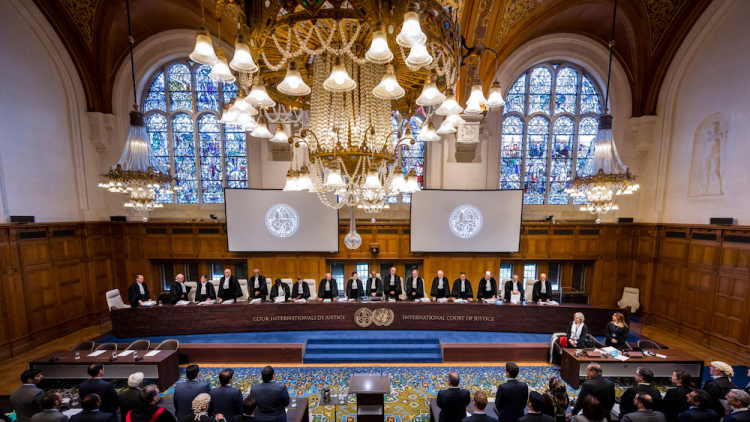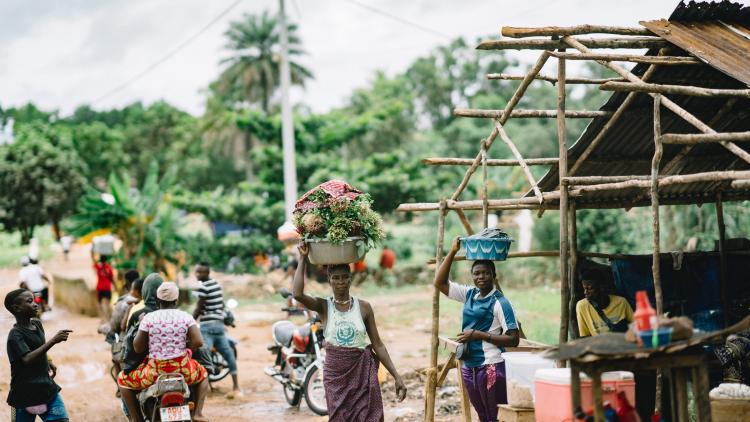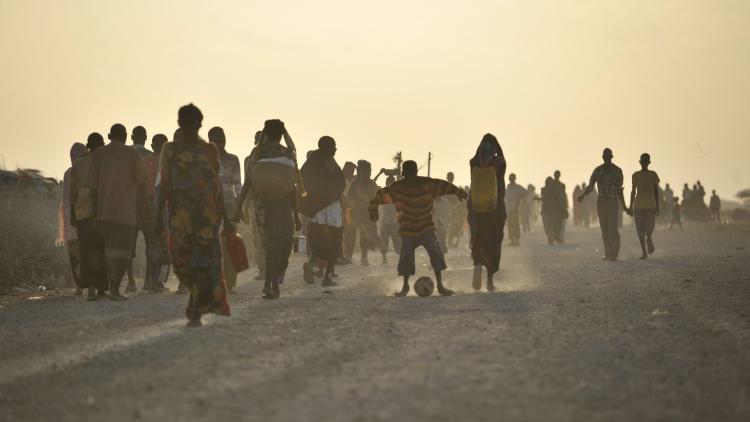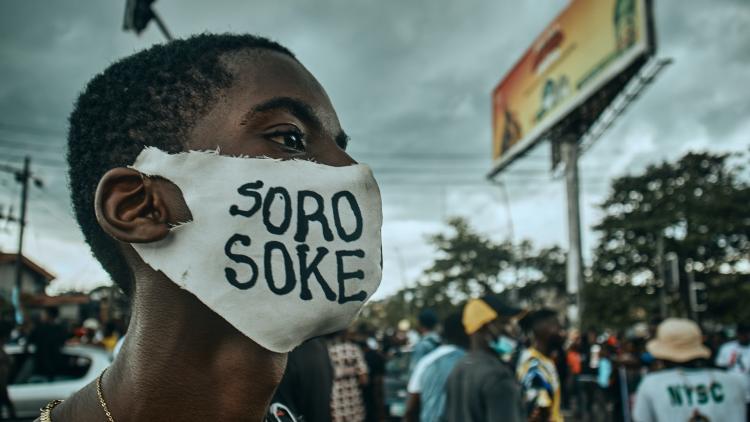MA Environmental Law and Sustainable Development


Key information
- Start date
- Duration
- 1
- Start of programme
- September
- Attendance mode
- Full Time
- Location
- SOAS on Campus
- Fees
-
Home student fees: £15,130 per year
Overseas student fees: £25,740 per yearPlease note that fees go up each year.
See postgraduate fees for further details. - Course code
- M3U2
- Entry requirements
-
A 2:1 degree in a relevant undergraduate degree.
If you have a lower degree classification, your application may be considered if you can present a strong case, either through relevant work experience, other legal qualifications, or a strong supporting statement. References are not required, but can help build a stronger application if you fall below the 2:1 requirement or have non-traditional qualifications.
See international entry requirements and English language requirements.
Course overview
The programme is designed to enable students to specialise in one of the most rapidly developing areas of law. It allows students to study environmental law and its application and relevance to a broad range of areas. Environmental law is one of the most challenging fields that has grown over the past five decades and is now one of the key areas of both domestic and international law. At SOAS, we understand the environment in a broad sense as deeply connected with human and social issues. The scope of modules offered includes a compulsory module on environmental law and social justice and modules covering various areas such as natural resources, climate change, water. All these modules examine substantive issues in terms of the broader context in which they fall, in particular (sustainable) development, socio-economic human rights, and the global North-South context.
The MA in Environmental Law and Sustainable Development provides a unique specialisation in a rapidly evolving area of law that covers a range of issues at the heart of major contemporary developments and debates.
This programme offers a wide range of distinctive modules that combine a focus on core subjects in the field alongside a critical inquiry into the theory and practice of environmental law, particularly as they relate to the global South.
Why study MA in Environmental Law and Sustainable Development at SOAS?
- We are ranked in the UK top 20 (QS World University Rankings 2023)
- SOAS is ranked 6th in the UK for employability (QS World University Rankings 2023)
- Our research publications have been rated first in the UK - and our School of Law rated 6th in the UK - in the Research Excellence Framework (REF) 2021
- SOAS degrees offers a distinct and unique mix of modules that covers the main areas of environmental law in their international and national dimensions, with a focus on the global South
- We understand environmental law as deeply connected with human and social issues. This is why our compulsory introductory course is a course on Law Environment and Social Justice. This also explains why human rights dimensions find repeated place in our courses
- Our international environmental law focused courses (International Environmental Law, Climate Change Law and Policy, and Law and Global Commons) will offer you a strong bases in some of the main challenges arising at the international and global level and provide you particular insights in the global South-global North aspects of relevant regimes that are on the whole structured around a North-South dichotomy
SOAS Law, Environment and Development Centre (LEDC)
The programme is anchored in the research carried out at SOAS on environmental law whose institutional home is the Law, Environment and Development Centre (LEDC). The LEDC is the focal point for environment-related research activities in the School of Law, including a vibrant PhD cohort, an annual seminar series, the publication of the Law, Environment and Development Journal (LEAD Journal), and other activities linked to ongoing research.
As students on the LLM in environmental law, you will be invited to become student members of the LEDC, providing you an opportunity to become involved and engage with the SOAS research community and actors in the field, which includes many scholars in different departments and inter-disciplinary centres, such as the Centre for Development, Environment and Policy and the Centre for Water and Development.
Why you?
This programme is ideal for graduates or professionals with no law background but an interest in the theory and practice of environmental law and related fields, particularly as they relate to the global South.
After you graduate, you will join alumni from the MA at SOAS, many of whom are now working in environmental NGOs and consultancies, in government, in policy work at the national or international level (UN or other) or in academia.
Structure
To facilitate the study of law, all MA students are required to attend a two-week Preliminary Law, Legal Reasoning and Legal Methods in the September before beginning the MA programme. Students must take modules to a total value of 180 credits, consisting of a dissertation (60 credits) and 120 credits of taught modules. Taught modules are worth either 15 or 30 credits. Students who wish to graduate with a specialised MA are required to take at least 60 credits associated with their specialised MA, and the dissertation topic will be undertaken within the MA specialisation.
Please note that not all modules listed will be available every year.
Important notice
The information on the website reflects the intended programme structure against the given academic session. The modules are indicative options of the content students can expect and are/have been previously taught as part of these programmes.
However, this information is published a long time in advance of enrolment and module content and availability is subject to change.
Compulsory
Guided options List A
Minimum 45cr from List A
Guided options List B
Maximum 60cr from List B, of which 30cr can be selected from Open Options
Teaching and learning
All Masters programmes consist of 180 credits, made up of taught modules of 30 or 15 credits, taught over 10 or 20 weeks, and a dissertation of 60 credits. The programme structure shows which modules are compulsory and which optional.
Contact hours
As a rough guide, 1 credit equals approximately 10 hours of work. Most of this will be independent study, including reading and research, preparing coursework, revising for examinations and so on. It will also include class time, which may include lectures, seminars and other classes. Some subjects, such as learning a language, have more class time than others. At SOAS, most postgraduate modules have a one hour lecture and a one hour seminar every week, but this does vary.
Knowledge and understanding
- Students will acquire specialist knowledge of environmental law in an international and comparative perspective.
- This includes, but is not necessarily limited to, knowledge and understanding of the following:
- the theoretical and practical underpinnings of environmental law internationally;
- the context in which law is made, interpreted, adjudicated, and amended;
- the role played by law, particularly environmental law in different situations internationally, particularly its role in promoting sustainable development in the global South;
- the role and function of legal institutions in managing the environment and natural resources;
- the weight and significance of different sources and methodologies.
- Students will develop knowledge of how to locate relevant materials and assess their relevance and/or importance.
Intellectual (thinking) skills
- Students should develop rigour in analysis and assessment of legal arguments.
- Students should develop the ability to understand, summarise and critically assess differing perspectives on theoretical debates.
- Students should develop independence of thought and the confidence to challenge the accepted wisdom.
- Students should learn to identify issues and formulate questions for further research through independent work.
- Students will be encouraged to bring to bear their own previous experience and knowledge in addressing legal issues in an interdisciplinary manner.
Subject-based practical skills
The programme will help students develop the ability to:
- Write clear research essays and dissertations.
- Research in a variety of specialized research libraries and institutes and online, and retrieve, sift and select information from a variety of sources.
- Present seminar papers and defend the arguments therein.
- Discuss ideas introduced during seminars.
- Develop essay and dissertation research questions.
- Read legal source materials rapidly and critically.
- Present legal arguments in moots and debates.
Transferable skills
The programme will enable students to:
- Communicate effectively in writing.
- Structure and communicate ideas and arguments effectively both orally and in writing.
- Read and comprehend significant quantities of reading rapidly and effectively and develop critical faculties.
- Find and use a variety of written and digital materials, especially legal materials, in libraries and research institutes.
- Present (non – assessed) material orally.
- Develop teamwork skills.
SOAS Library
SOAS Library is one of the world's most important academic libraries for the study of Africa, Asia and the Middle East, attracting scholars from all over the world. The Library houses over 1.2 million volumes, together with significant archival holdings, special collections and a growing network of electronic resources.
Scholarships
Employment
SOAS Law graduates leave SOAS as civic minded and critically engaged individuals who can effectively contribute to their communities and societies. With a thorough understanding of the legal dimensions underlying many of our global challenges today, our Law students are valued by employers due to their analytical skills, specialist knowledge, and global perspective.
Graduates of the LLM Environmental Law and Sustainable Development degree have gone on to take up a variety of exciting opportunities.
Recent graduates have been hired by:
- United Nations Environment Programme (UNEP)
- Milieu
- ClientEarth
- Climate Law & Policy
Find out about our Careers Service.









